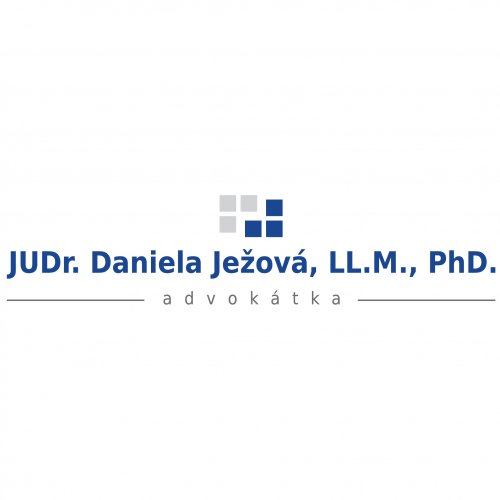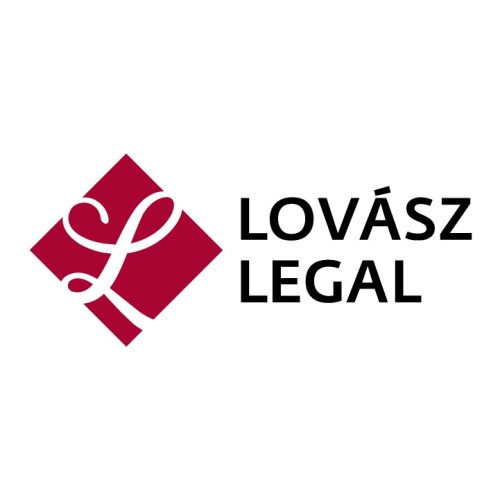Best Faith-Based Law Lawyers in Bratislava
Share your needs with us, get contacted by law firms.
Free. Takes 2 min.
List of the best lawyers in Bratislava, Slovakia
About Faith-Based Law in Bratislava, Slovakia
Faith-Based Law in Bratislava, Slovakia, refers to the legal accommodations and considerations made for various religious communities to practice and observe their faith traditions within the legal framework of the country. Slovakia is predominantly Christian, with Roman Catholicism being the most practiced religion. However, the country recognizes a range of religions and supports religious freedom as part of its constitutional rights. Faith-Based Law addresses issues such as religious marriage, education, and rituals, ensuring that these practices are respected and can be legally recognized within Slovakian society.
Why You May Need a Lawyer
Individuals or organizations in Bratislava might seek legal help in Faith-Based Law for several reasons. For example, couples seeking religious marriage ceremonies may need assistance to ensure their marriage is recognized under civil law. Religious organizations might require legal guidance on property ownership or structuring their governance in accordance with both faith and national laws. Issues related to faith-based education, such as establishing religious schools or ensuring religious curriculums meet educational standards, are also areas where legal advice may be necessary.
Local Laws Overview
Slovakia's constitution guarantees freedom of religion, allowing individuals to practice their faith freely. Key statutory provisions relevant to Faith-Based Law include the Law on Freedom of Religious Belief, which outlines the processes for registering religious groups and their rights. The Civil Code details the requirements for marriages to be legally recognized, whether religious or civil. Educational laws govern how faith-based schools operate and integrate with the national education standards. Additionally, anti-discrimination laws protect individuals from religious discrimination in workplaces and public settings.
Frequently Asked Questions
What is the process for registering a religious group in Slovakia?
Religious groups must submit an application to the Ministry of Culture, providing documentation such as their statutes and the signatures of at least 50,000 adherents who are Slovak citizens or permanent residents.
Are religious marriages legally recognized in Slovakia?
Yes, religious marriages are recognized by the state, provided they meet the formalities required under civil law, including registration with local authorities.
Can religious holidays be observed in the workplace?
Employees have the right to request time off for religious holidays, though employers are not legally required to grant paid leave. Negotiating with employers for leave is advised.
How are faith-based schools regulated?
Faith-based schools must meet national curriculum standards and are subject to the same regulatory oversight as public schools. They must also be registered with the Ministry of Education.
What protections exist against religious discrimination?
Slovakian law prohibits discrimination based on religion in areas such as employment, education, and access to services, providing a legal basis for redress in cases of discrimination.
How can a religious organization acquire property in Slovakia?
Religious organizations can acquire property through purchase or donation, subject to the same legal requirements as other legal entities, including registration of ownership with the cadastral office.
Are there tax exemptions available for religious organizations?
Registered religious organizations are generally exempt from paying taxes on income directly related to their religious activities and are eligible for certain property tax exemptions.
Can foreign religious workers obtain visas to work in Slovakia?
Yes, religious workers can apply for temporary residence permits for the purpose of religious work, which requires sponsorship and documentation from their religious organization in Slovakia.
What legal steps are involved in building a new place of worship?
Building a new place of worship involves obtaining building permits and ensuring compliance with local zoning laws. Legal assistance is beneficial to navigate these requirements.
Can laws impact the expression of religious beliefs in public?
While Slovakia upholds freedom of religion, public expression must also respect the rights and freedoms of others, following public order and safety regulations.
Additional Resources
People seeking legal advice in Faith-Based Law may find the following resources helpful: Ministry of Justice of the Slovak Republic for legal support services, the Slovak Bishops' Conference for Catholic legal matters, and the Forum for Religious Freedom Europe for advocacy and information on religious rights.
Next Steps
If you require legal assistance in Faith-Based Law, consider consulting a lawyer who specializes in religious law and has experience with Slovakian legal requirements. Preparing documentation about your case or issue beforehand can facilitate the consultation process. You may also wish to connect with local religious organizations that can offer guidance and support. Lastly, contacting government agencies directly for specific procedural information can provide a clearer path forward.
Lawzana helps you find the best lawyers and law firms in Bratislava through a curated and pre-screened list of qualified legal professionals. Our platform offers rankings and detailed profiles of attorneys and law firms, allowing you to compare based on practice areas, including Faith-Based Law, experience, and client feedback.
Each profile includes a description of the firm's areas of practice, client reviews, team members and partners, year of establishment, spoken languages, office locations, contact information, social media presence, and any published articles or resources. Most firms on our platform speak English and are experienced in both local and international legal matters.
Get a quote from top-rated law firms in Bratislava, Slovakia — quickly, securely, and without unnecessary hassle.
Disclaimer:
The information provided on this page is for general informational purposes only and does not constitute legal advice. While we strive to ensure the accuracy and relevance of the content, legal information may change over time, and interpretations of the law can vary. You should always consult with a qualified legal professional for advice specific to your situation.
We disclaim all liability for actions taken or not taken based on the content of this page. If you believe any information is incorrect or outdated, please contact us, and we will review and update it where appropriate.












